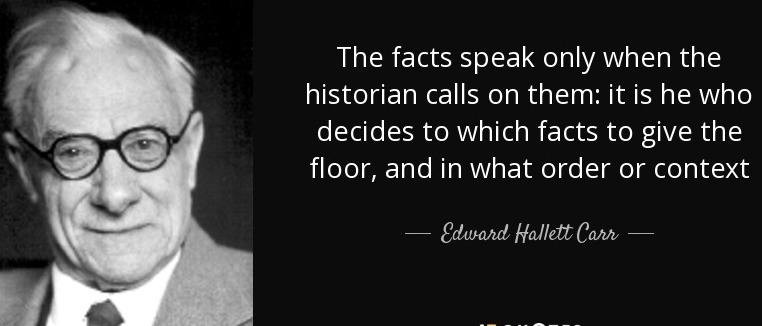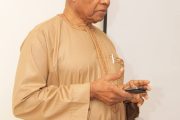Although it remains a big puzzle where Nigerians got this idea that reading History in school, irrespective of the Historiographical narrative, will make the products to have historical awareness and correct judgment of issues and situations, this essay is still provocative. Ambassador Usman Sarki, the author, is a former Deputy Permanent Representative of Nigerian to the United Nations in New York. He is now in think tanking.
Read on!
By Ambassador Usman Sarki
I was motivated to write this piece by the memory of my teacher and mentor, Dr. Yusuf Bala Usman, whose lecture titled “History, Tradition and Reaction: The Perception of Nigerian History in the 19th and 20th Centuries”, remains as relevant today as the day it was first given on 27th April, 1977, at Ahmadu Bello University, Zaria, Nigeria. With a prescience of the accomplished historian, Dr. Usman justified his speaking to the subject by noting that “I am raising these issues because I feel that they are very important issues which confront our peoples of this country today, not at the immediate level of daily existence, but at the more fundamental level of our long-term existence”.

Dike, the symbol of Afrocentric/postcolonial Ibadan School in Historiography which is a different lens from the Zaria School

Bala Usman, the signifier of the radical, anti-imperialist Zaria School in Historiography
This is profound because today, forty-three years after the delivery of that lecture, Nigerians are still grappling with fundamental issues such as whether they should live together or not. Elite push and general popular disinterest in history, seem to have robbed Nigerians of their sense of discernment and objectivity in ascertaining assumptions forced upon them. Distanced from historical facts and commonly unaware of their past, many Nigerians assume as facts any or all issues thrust upon them even if it means leading to the inveterate dislike or hatred of their fellow country men and women, fostered by the stock-in-trade manipulations of detractors and hate mongers.
Self-awareness does not only begin with the consciousness of our being, or an emphatic acknowledgement of who we perceive ourselves to be. Indeed, self-awareness is a far-reaching and deep seated as well as an elemental consciousness of where we came from, what is our present condition and where ultimately we are headed. This social or evolutionary understanding of self-awareness must therefore, necessitate the study of what happened before we became, and the forces shaping our being here presently, as well as what these mean for our future.
For such an understanding to be possible, we need to study history, which should not only instruct us about the past, but also inform us about our present conditions as well as guide us in our communal actions towards shaping our future. Essentially, history is about taking our destiny into our own hands, proceeding from an understanding of what went on in the past, and how the past shaped the present and will ultimately create our future. The first thing that the study of our past should challenge and seek to correct, is the simplified view of the development of our societies along elemental, primitive and tribal lines. This assumption underlies the way we are seen or our history is perceived as a people that barely rose above the level of nature, and in fact closer to the animals with which we cohabit our ecosystems, before the coming of the Europeans in our midst.
The rectification of this romanticized and often racist view of us is an urgent task that must be undertaken with all the tools and wisdom given to us by the study of history and appraisal of the dynamics for the evolution of our societies. Often times we speak about nation-building in the abstract, as if it is akin to putting some blocks together to create an edifice. Nation-building can only take place when there is a consciousness about belonging to a “nation” whereby a “group feeling” as noted so correctly by the great historian Ibn Khaldun, is created that is guided by common sentiments and perceptions about who we are and what binds us together.

History as a postcolonial critique of elite

History as identity and the Historian as judge
There were “Romans” in antiquity who were bound together by the same laws, the same civilizational trends and similar status under one government (Pax Romana) and who can at any time be called upon to serve in the army to either protect the state or expand its frontiers by conquest. Today’s Italians cannot be assumed to share the feeling of being “Romans” having been conquered and subjugated under various dominions such as those of the Germans, Goths, Franks, Normans, French, Swedes, etc. Having a sense of being part of a nation is not a subconscious affair, or something that one is born with.
I can be of Nigerian parents from Borno but born and brought up in Sweden for instance, in which case my being a “national” of Nigeria will definitely be at a different level of understanding from those of my parents. In this case, what they understand as “nationhood” in the physical and psychological sense may not be the same thing with me. Invariably by being born and brought up in Sweden and having internalized Swedish culture, habits and even language, I have been temperamentally distanced from a feeling of being “Nigerian” in the active and profound sense of the word.
Nationality can only effectively be created by being within the fold of that entity you wish to call a “nation” and identifying with all its attributes, challenges and prospects. It is not something like an acquired taste for something. It is brought about by active and physical engagement in the processes that are building and shaping that “nation”, and having internalized its outward attributes like its languages, customs, manners and other peculiarities.
To really understand what the “nation” means, a recourse must be made to the study of history, through which a consciousness will be developed about being part of that entity and sharing in its past and present, and hoping to contribute to the development of its future. History therefore, is the determinant of nationhood. Building a nation-state must therefore, also involve the teaching and understanding of history, otherwise what one will end up having is a hotchpotch of groupings of people unconnected by any common denominators that will unify them.
The essence of studying history at least in the context of what is deemed by “historical study” at the Ahmadu Bello University (ABU) in the 1970s through to the 1980s was to make it not merely a tool of inquiry about the past, but an analytical instrument towards ascertaining facts, testing assumptions and creating the conditions necessary for the progressive transformation of societies.

This is the real classic of the Zaria School of History EXCEPT that MMT would weep today if he were still alive to read the parochialism, myopia and intellectual corruption spewed by some of his former students on Facebook today!

Carr got it absolutely right by defining History also as “a continuous process of interaction between the historian and his facts, an unending dialogue between the past and the present”.
Thus, the Department of History at ABU under the illustrious leadership of teachers like Professor Abdullahi Smith, Dr. Yusuf Bala Usman, Dr. Mahmud Modibbo Tukur, Dr. Addullahi Mahdi, Professor Mahdi Adamu and many other notable names decided to establish the critical criteria for teaching history, based on the clear perception that:
“The basic objective of the history teaching programme in this university is to give the student a thorough grasp of Nigerian history and historiography, placed firmly in the context of African history and historiography and historical movements of world significance from other continents. The purpose of this is to make the student comprehend the historical forces and developments which have shaped and are shaping the lives of the peoples of Nigeria, Africa and the rest of the world. And at the same time, develop in the student the capacity to consciously relate to these forces and developments in ways which foster Nigerian and African unity and independence. The courses shall be taught through lectures, tutorials and seminars in which the process of historical development and methods of historical reconstruction are brought out clearly”.
These positions were not mere aspirations but realities that were inculcated into all history students at the University. It is that defining philosophy and approach to historical study that set the products of the Ahmadu Bello University apart from their counterparts elsewhere. It is this same guiding principle that made them amenable to become deeply patriotic and have a very clear and unclouded notion of what Nigeria is, and how to bring about her unity and forge her continued existence as a nation.
It is therefore not surprising to find ABU graduates from all parts of Nigeria maintaining an unshakable commitment to Nigeria’s unity and survival unlike many others who daily preach her dismemberment and destruction for no other logical reason than the dislike of one part of the country or the other. Their lack of grasp of the significance of Nigeria, and their belittling of the building of such an enterprise of historical proportions, have made them so jaundiced and prejudiced that they cannot see the epochal undertaking that such a project entails.
It is for these and other reasons that the teaching of history must be reinstated in all Nigerian schools, to include such subjects like ethics, etiquette, civics and other beneficial lessons that will shape our attitudes to our neighbours, compatriots and other Africans as well. It is not too late to retrace our steps from the ill-advised decision to terminate the teaching of history to Nigerians in their schools. A timely course correction can be made and better results towards producing more enlightened citizens that would bring about genuine national unity and progress can be attained along generational lines.




























